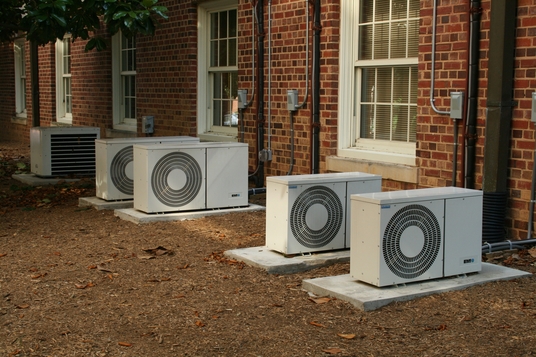Generator Installation: A Critical Career in Providing Stable Power to Homes and Businesses
Generator installation is an important job that ensures that homes and businesses can continue to operate normally during power outages. With the increase in extreme weather and power outages, generators have become a necessity for many homes and businesses. Generators can not only provide temporary power during power outages, but can also be used as a standing power system in certain industries. Therefore, generator installation jobs are in constant demand in the market and provide good career opportunities for skilled workers.

Generator installation is an important job that ensures that homes and businesses can continue to operate normally during power outages. With the increase in extreme weather and power outages, generators have become a necessity for many homes and businesses. Generators can not only provide temporary power during power outages, but can also be used as a standing power system in certain industries. Therefore, generator installation jobs are in constant demand in the market and provide good career opportunities for skilled workers.
Generator Installation: A Critical Career in Powering Homes and Businesses
Generator installation has become an increasingly vital profession in today’s world, where power outages can disrupt daily life and business operations. As extreme weather events and aging infrastructure challenge power grids, the demand for skilled generator installers continues to rise. This career path offers stability, competitive wages, and the satisfaction of providing essential services to communities.
Why Choose a Career in Generator Installation?
Opting for a career in generator installation presents numerous advantages. The field offers job security due to the growing reliance on backup power systems across residential and commercial sectors. Generator installers play a crucial role in ensuring uninterrupted power supply during outages, making their skills highly valued. Moreover, the profession provides opportunities for continuous learning and advancement as technology evolves.
What Are the Main Responsibilities of Generator Installers?
Generator installers are tasked with a diverse range of responsibilities. These include site assessment to determine the appropriate generator size and type, planning the installation layout, and coordinating with electricians and other trades. They must also handle the physical installation of generators, connect them to existing electrical systems, and ensure compliance with local codes and regulations. Regular maintenance and troubleshooting are also part of their duties.
How Can One Get Into Generator Installation?
Entering the generator installation field typically requires a combination of education and hands-on experience. Many professionals start with a vocational program or apprenticeship in electrical work or mechanical systems. Specialized training in generator installation, often provided by manufacturers or technical schools, is essential. Certifications from organizations like the Electrical Generating Systems Association (EGSA) can enhance credibility and job prospects.
What Is the Salary Level for Generator Installation Jobs?
The salary for generator installation jobs varies based on factors such as experience, location, and specialization. Entry-level positions may start around $35,000 to $45,000 annually, while experienced installers can earn upwards of $70,000 to $90,000 per year. Some professionals in high-demand areas or those who specialize in large-scale industrial installations may command even higher salaries.
Generator installation offers a range of career opportunities beyond the initial installation process. Many professionals advance to roles such as project manager, technical trainer, or service department supervisor. Some even start their own generator installation and maintenance businesses. The increasing integration of smart technology and renewable energy systems with generators also opens up new specializations within the field.
What Are the Career Prospects in Generator Installation?
The career outlook for generator installation is promising. As climate change leads to more frequent severe weather events and power disruptions, the demand for backup power solutions continues to grow. This trend is further bolstered by the increasing reliance on uninterrupted power for critical infrastructure, healthcare facilities, and data centers. Additionally, the push for cleaner energy sources is driving innovations in generator technology, creating opportunities for installers to expand their expertise.
How Does Generator Installation Compare to Other Trades?
When considering a career in generator installation, it’s helpful to compare it with other trades in terms of job outlook, salary potential, and required skills. Generator installation often overlaps with electrical work but requires additional specialized knowledge. Unlike some construction trades that may face seasonal fluctuations, generator installation tends to offer more consistent work throughout the year, especially in areas prone to power outages.
| Trade | Average Salary Range | Job Outlook (2020-2030) | Key Skills Required |
|---|---|---|---|
| Generator Installation | $35,000 - $90,000+ | Positive growth expected | Electrical systems, mechanical aptitude, problem-solving |
| Electrician | $32,000 - $98,000 | 9% growth (average) | Electrical theory, wiring, safety protocols |
| HVAC Technician | $30,000 - $77,000 | 5% growth (slower than average) | Climate control systems, refrigeration, troubleshooting |
| Plumber | $33,000 - $98,000 | 5% growth (slower than average) | Pipe fitting, water systems, building codes |
Note: Salary ranges and job outlook data are estimates based on industry reports and may vary by region and over time. Independent research is advised for the most current information.
The field of generator installation offers a rewarding career path for those interested in combining electrical knowledge with mechanical skills. As the demand for reliable power continues to grow, skilled generator installers will play an increasingly important role in maintaining the energy security of homes, businesses, and critical infrastructure. With opportunities for specialization and advancement, this career provides both stability and the potential for professional growth in an essential industry.
The shared information of this article is up-to-date as of the publishing date. For more up-to-date information, please conduct your own research.




